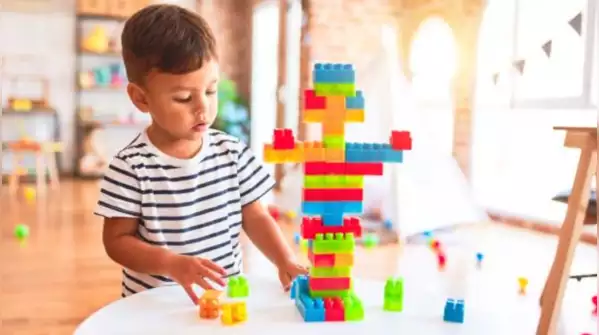ETimes.in / Dec 15, 2024, 15:00 IST
AA
Text Size
- Small
- Medium
- Large

1/6
Honesty is the most difficult thing to teach a child
Honesty is one of the most important traits we can instill in our children, but making an environment where honesty thrives takes conscious effort. Children are naturally observant and learn more from what they see and feel at home than from what they are told. If certain behaviors or practices at home contradict the values you are trying to teach, it can create confusion and fear, making your child reluctant to be truthful.

2/6
Do not practice fear based discipline
Fear can be a wonderful deterrent, but when fear is used to enforce discipline, the outcome is usually dire. If honesty is equated with punishment, then children will hide the truth because of harsh consequences. The act of threats, yelling, or physical punishment is going to teach kids to fear your reaction rather than find the value in honesty.
Rather than scaring them, help your child feel comfortable owning mistakes. When your child breaks something, for instance, avoid lashing out. Explain to him what went wrong, why it happened, and how he might avoid doing it again. You’ll replace fear with the sound of constructive dialogue. Show them honesty always supersedes hiding the truth.

3/6
Do not set the standards of perfection too high
Setting impossibly high standards can pressure children to lie to meet expectations. When kids feel they must always excel, whether in academics, sports, or behavior, they may resort to dishonesty to avoid disappointing you. For example, they might claim they have finished their homework or scored better than they actually did.
A healthier approach is to encourage effort and progress rather than perfection. Praise their hard work and resilience, even when the outcome isn’t perfect. Let them know that making mistakes is part of learning and growing. This openness fosters trust and reassures them that being truthful won’t jeopardize your love or support.

4/6
Do not encroach upon their privacy
Children, like adults, need privacy and a sense of autonomy. When parents excessively monitor their children’s activities, go through their belongings, or interrogate them about every detail of their lives, it can make kids feel mistrusted. In such environments, children may hide things or lie to protect their sense of independence.
Respecting your child’s boundaries doesn’t mean giving them complete freedom—it means balancing supervision with trust. Allow them to share things at their own pace and focus on open-ended conversations rather than intrusive questioning. For example, instead of asking, “Who were you texting?” try, “How was your day? Anything interesting happened?”

5/6
Do not show hypocrisy and dishonesty within family
Children closely observe their parents’ actions and often imitate them. If they see you being dishonest, whether through small lies (“Tell them I’m not home” or “I forgot” when you didn’t) or larger deceitful behaviors, they may internalize dishonesty as acceptable or necessary in certain situations.
To model honesty, practice what you preach. Admit when you are wrong and be transparent with your child. For example, if you make a promise and can’t keep it, explain why and apologize. Showing vulnerability demonstrates that honesty isn’t about being perfect but about being authentic and accountable.

6/6
Do not dismiss their feelings
If children feel their emotions or thoughts are not valued or respected, they may become hesitant to open up about their true feelings. Statements like “Don’t be silly,” “You’re overreacting,” or “Stop crying” dismiss their experiences, making them feel invalidated. As a result, they may hide their feelings or fabricate stories to gain attention or avoid judgment.
Make a supportive environment by actively listening and validating their emotions, even if you don’t fully understand or agree with them. For instance, if your child says they are scared about a school project, instead of dismissing it, say, “I understand that you’re feeling nervous. Let’s figure out how to make it less overwhelming together.” When children feel heard, they are more likely to be honest about their experiences.
FOLLOW US ON SOCIAL MEDIA